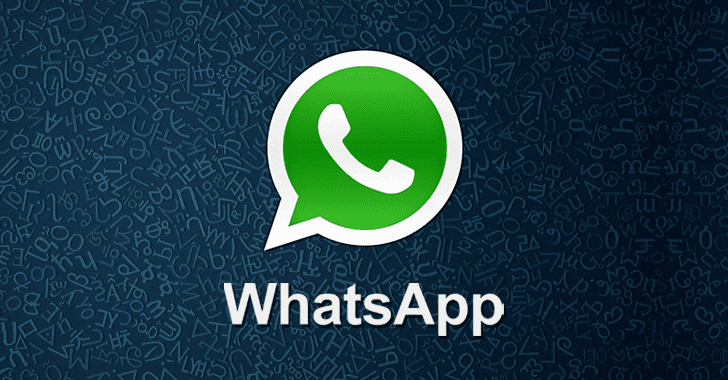
New WhatsApp Bug Could Have Let Hackers Secretly Install Spyware On Your Devices
November 21, 2019
The recent controversies surrounding the WhatsApp hacking haven't yet settled, and the world's most popular messaging platform could be in the choppy waters once again.
The Hacker News has learned that last month WhatsApp quietly patched yet another critical vulnerability in its app that could have allowed attackers to remotely compromise targeted devices and potentially steal secured chat messages and files stored on them.
The vulnerability — tracked as CVE-2019-11931 — is a stack-based buffer overflow issue that resided in the way previous WhatsApp versions parse the elementary stream metadata of an MP4 file, resulting in denial-of-service or remote code execution attacks.
To remotely exploit the vulnerability, all an attacker needs is the phone number of targeted users and send them a maliciously crafted MP4 file over WhatsApp, which eventually can be programmed to install a malicious backdoor or spyware app on the compromised devices silently.
(adsbygoogle = window.adsbygoogle || []).push({});
The vulnerability affects both consumers as well as enterprise apps of WhatsApp for all major platforms, including Google Android, Apple iOS, and Microsoft Windows.
According to an advisory published by Facebook, which owns WhatsApp, the list of affected app versions are as follows:
Android versions before 2.19.274
iOS versions before 2.19.100
Enterprise Client versions before 2.25.3
Windows Phone versions before and including 2.18.368
Business for Android versions before 2.19.104
Business for iOS versions before 2.19.100
The scope, severity, and impact of the newly patched vulnerability appear similar to a recent WhatsApp VoIP call vulnerability that was exploited by the Israeli company NSO Group to install Pegasus spyware on nearly 1400 targeted Android and iOS devices worldwide.
At the time of writing, it's not clear if the MP4 vulnerability was also exploited as a zero-day in the wild before Facebook learned about and patched it.
The Hacker News has reached out to Facebook and WhatsApp for comment and will update the article as soon as we hear back from them.
Meanwhile, if you consider yourself as one of the potential surveillance targets and have received a random, unexpected MP4 video file over WhatsApp from an unknown number in recent months, you should pay more attention to the upcoming developments of this event.
The WhatsApp MP4 vulnerability came just two weeks after Facebook sued the NSO Group for misusing WhatsApp service to target its users.
Also Read: Just a GIF Image Could Have Hacked Your Android Phone Using WhatsApp











 What we do
What we do





















 Contact US
Contact US

